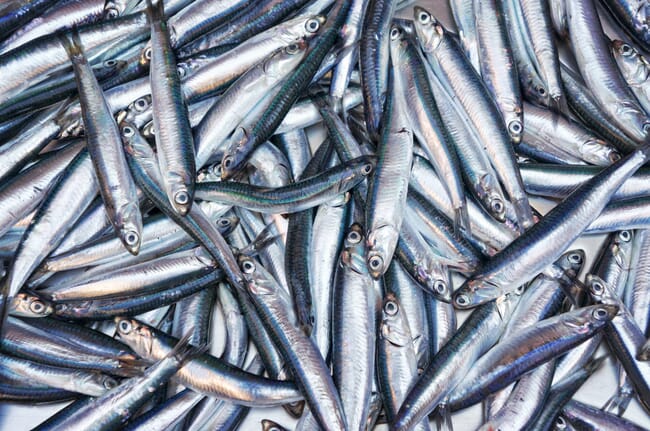
It is hoped that the new initiative will improve the sustainability of those fisheries producing marine ingredients for aquaculture
The innovative financing model focuses on reversing the trend of fisheries decline and scaling global fisheries improvements toward nature-positive outcomes for healthier marine ecosystems, thriving fishing communities and a sustainable blue economy. Finance Earth, a leading impact investment advisory and fund manager will establish and manage this new mechanism – called the Fisheries Improvement Fund (FIF). The ambition is to catalyse more than $100 million in investment in fisheries improvement by 2030.
“Through this blue finance mechanism, sustainable financing will be ensured for projects that are critical to scaling fishery reform over the coming decade for people and nature, through an efficient, equitable, and cost-effective model. Our vision is that this fund, under the management of Finance Earth, revolutionises fisheries finance, driving game-changing environmental and social impact,” said Johan Bergenas, senior vice-president of oceans at WWF US, in a press release.
WWF and FE worked with industry to conceptualise and design a model that is impactful, scalable across fisheries, and supported by companies working to transition fisheries in their supply chains to more sustainable resources.
“At Finance Earth, we believe in advancing the improvement of global fisheries by providing innovative solutions. We are thrilled to have worked with WWF and prominent feed and buyer companies on this breakthrough initiative and be launching this new model to provide finance for fisheries improvements. At scale, this approach has the capacity to attract a range of investors from the public and private sector to support fishery improvement worldwide. This is a unique opportunity for all of us to protect our oceans and invest in a sustainable blue economy,” explains James Mansfield, co-founder and managing director at Finance Earth.
Feed companies Cargill and Skretting brought their expertise and unique insights to the development of the concept and have agreed to participate in a pioneering pilot project to showcase and prove the new model. Large-scale seafood buyers and philanthropic foundations including Mars, Incorporated, Costco Wholesale, Sodexo, and Walmart Foundation are also supporting the launch of the Fund.
Cargill and Skretting, will commit to a volume-based fee that enables the FIF to pay back upfront costs for the FIPs as well as create a long-term revenue stream. This innovation changes how long-term sustainability is funded, recognised as a cost of doing business, and embedded into the product costs. This model is essential to a company’s future sustainability and profitability and the best way to ensure scalable funding across all areas of business.
“At Cargill, we are excited to engage with WWF and Finance Earth on this innovative blue finance mechanism to scale fisheries improvement. We see a clear and compelling business case for companies to invest in the long-term viability of their marine ingredients used for aquaculture products, especially as aquaculture production continues to grow exponentially. The industry needs to work to support sourcing from more sustainable fisheries through active engagement. Improvement in fisheries will reduce supply chain volatility and mitigate supply chain risk while enhancing business value across the sector,” notes Helene Ziv-Douki, president of aqua nutrition business at Cargill.
Blended capital
Drawing on Finance Earth’s expertise in this field, the concept tests innovation in how to finance pressing on the ground conservation projects by creating a model that has the ability to blend different sources of capital together thereby increasing the overall availability of funding for fisheries recovery.
The pilot project, more details of which will be released in the near future, has secured a capital commitment to pay for the upfront costs of transition, through an innovative program-related investment (PRI) instrument. Testing the concept in the real world using these types of highly concessionary capital will create a blueprint for the Fisheries Improvement Fund to scale. Beyond the pilot, the fund will be able to attract capital from a wider range of sources beyond philanthropy, reducing transaction costs and enabling funds to be deployed at speed and scale to target Fishery Improvement Projects.
Finance Earth is now seeking proposals for fisheries worldwide that may be interested in seeking funding through the new Fisheries Improvement Fund and is open to opportunities brought forward by any relevant stakeholder(s): including NGOs, local fishing groups, industry actors, off-take/trading companies, buyers/retailers, and local/national governments. The Fund can support both industrial and small-scale fisheries and is open to fisheries currently in a FIP or not yet in FIP. Click here to find out more.




